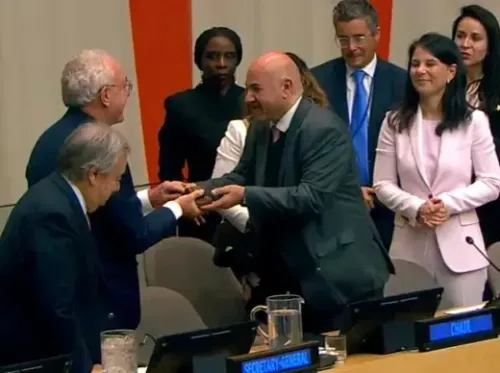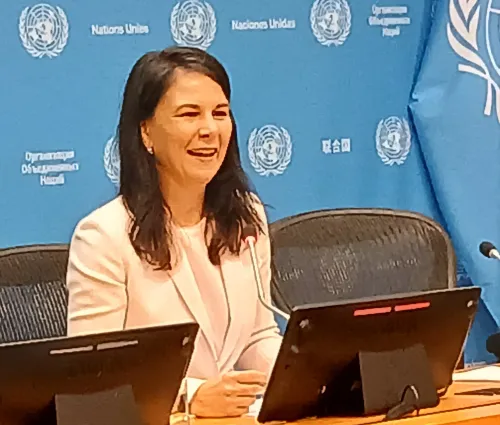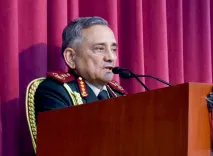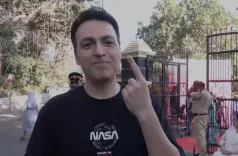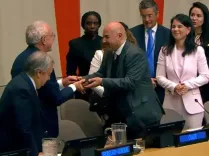What Did Russian President and Iraqi PM Discuss Over the Phone?
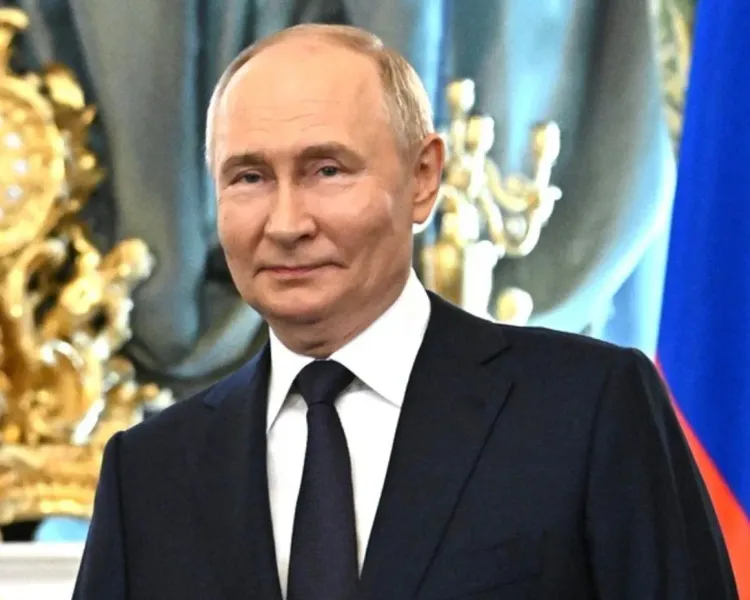
Synopsis
Key Takeaways
- Iraq opposes foreign airspace violations.
- Putin emphasizes de-escalation efforts.
- Calls for international action to aid Gaza civilians.
- Israeli strikes target Iranian military capabilities.
- Regional tensions require diplomatic solutions.
Baghdad, June 23 (NationPress) - In a significant phone call on Monday, Iraqi Prime Minister Mohammed Shia' al-Sudani engaged with Russian President Vladimir Putin to address pressing regional and international issues.
During their conversation, al-Sudani reiterated Iraq's firm stance against the Israeli assaults on Iran and condemned the U.S. bombings of Iranian nuclear sites, as reported by al-Sudani's media office.
He also denounced the infringement of Iraqi airspace by U.S. and Israeli aircraft, emphasizing Iraq's resolve to maintain its sovereignty and urging the UN Security Council to act decisively in halting the conflict and enhancing diplomatic initiatives.
Putin, for his part, underscored the necessity for de-escalation, informing al-Sudani of his ongoing efforts in this direction. He expressed disapproval of any violations against Iraq's airspace and sovereignty.
Additionally, both leaders discussed the ongoing conflict in Gaza, stressing the urgent need for effective international action to cease the bloodshed of Palestinians and alleviate the plight of civilians lacking essential resources.
In a related development, the Israeli Defence Forces (IDF) reported that their Air Force conducted strikes on critical command centers and assets connected to Iran's internal security forces and the IRGC in Tehran.
The IDF stated that over 50 fighter jets targeted military installations in Tehran in the latest series of attacks, aimed at undermining the military capabilities of the Iranian regime, including strikes on military headquarters, missile production sites, and storage facilities in the Tehran region.
Among the targets was the 'Tharallah' headquarters, part of the Revolutionary Guards' general headquarters, intended to shield Tehran from security threats, including internal challenges. The 'Sayed Al-Shahada' Brigade, also under the Revolutionary Guards and tasked with homeland defense, was similarly targeted.


